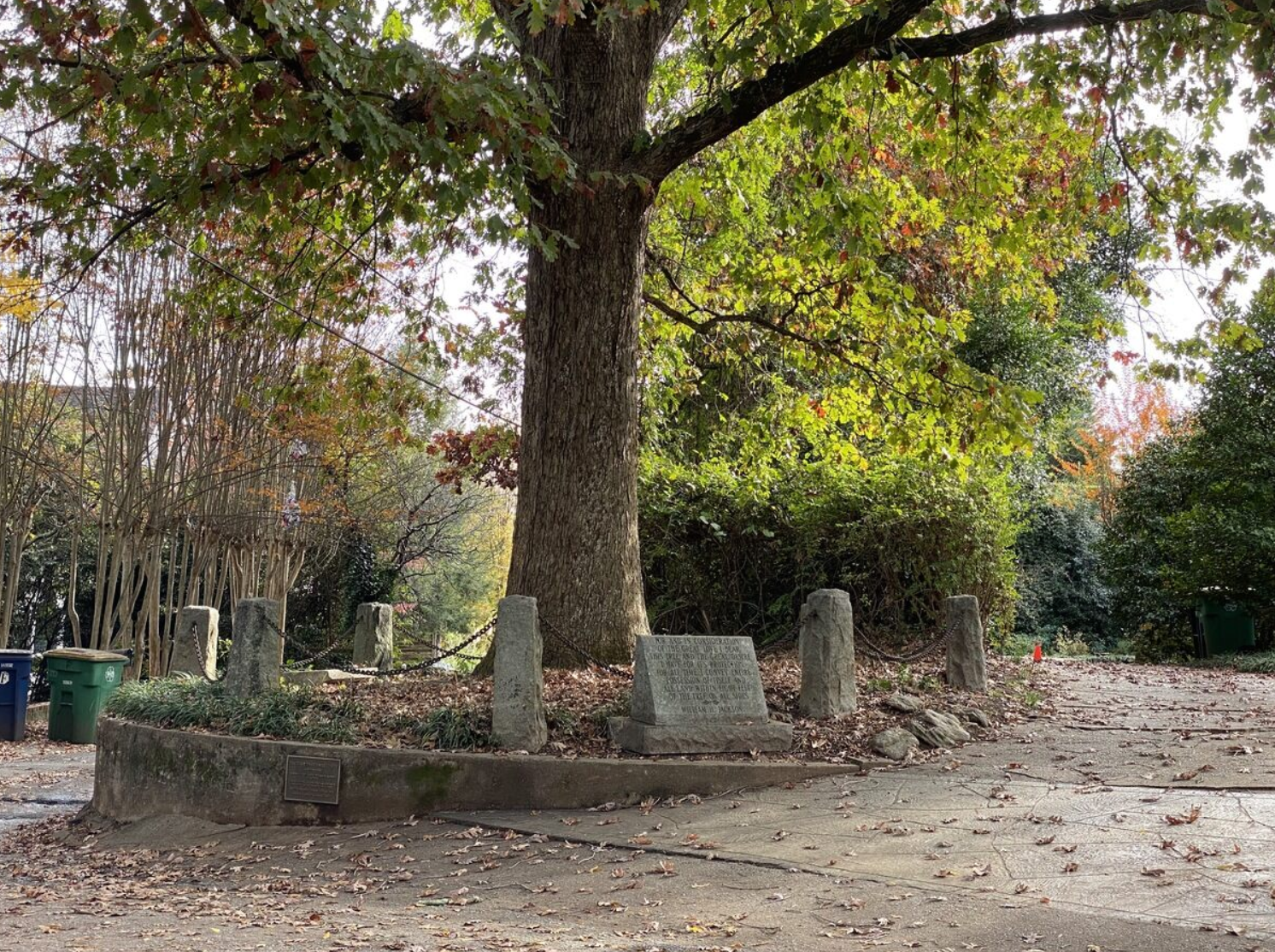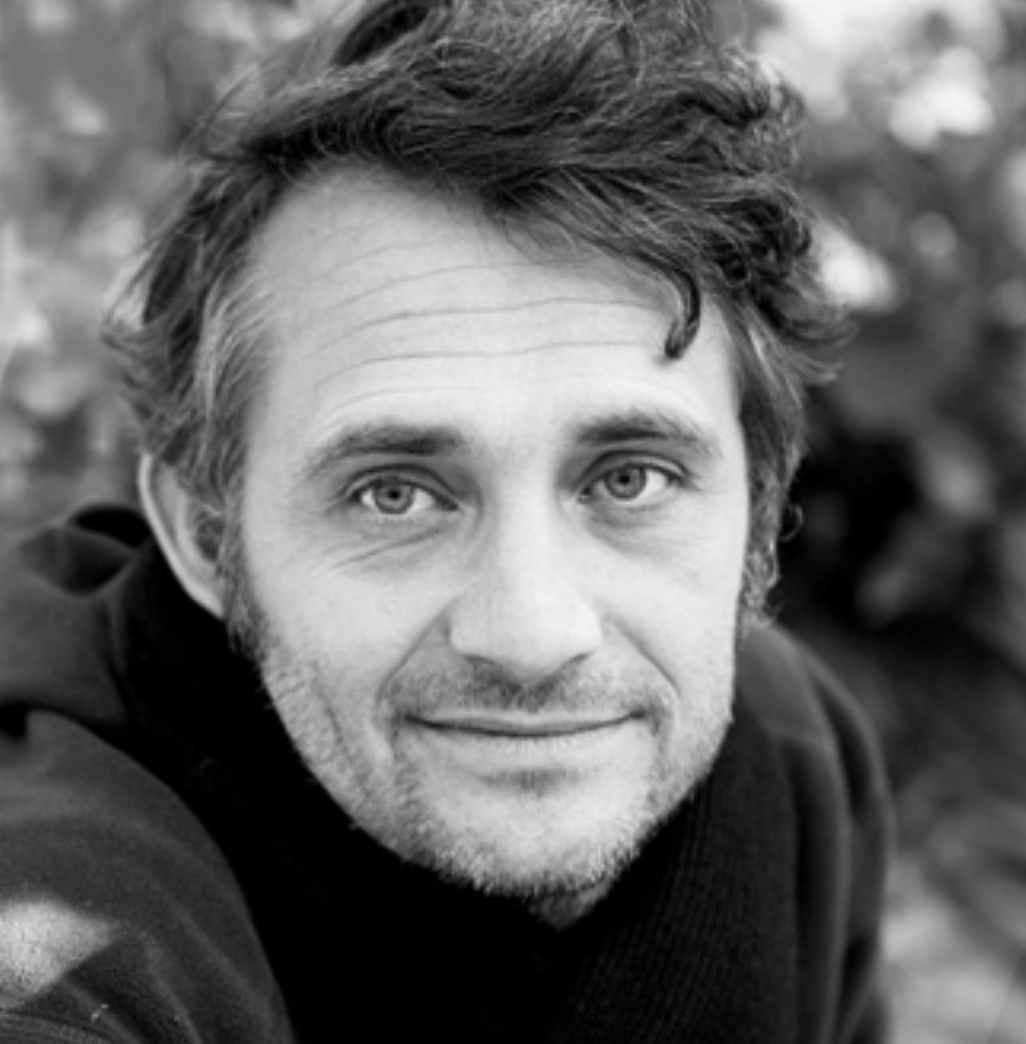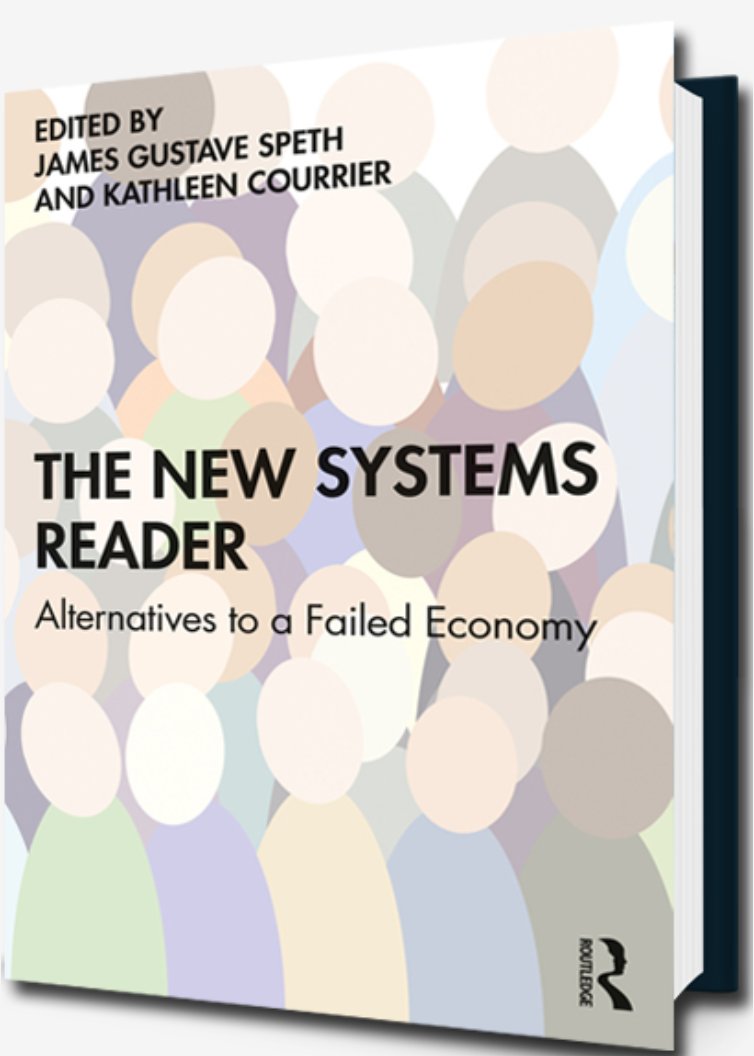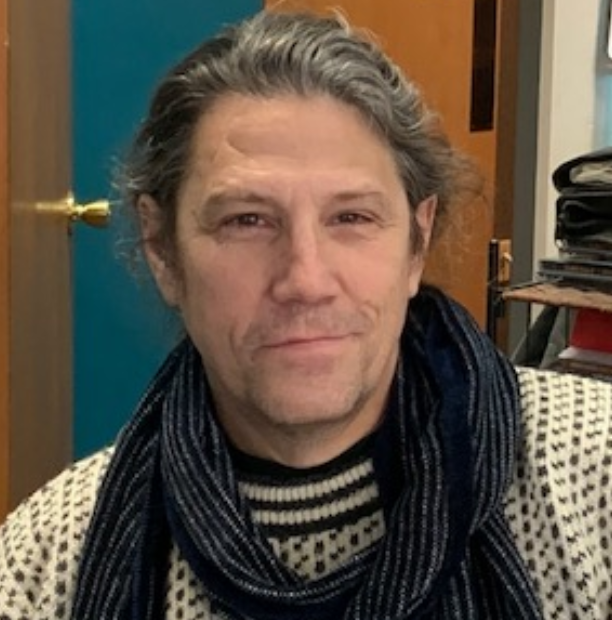If you’re a good ancestor of the Enlightenment, you probably believe that “nature” is something entirely separate from us. We moderns live at a sanitized distance from messy biophysical realities, after all. Lately, this casual premise of ours has been taking some serious hits, however, with the acceleration of climate change, species extinctions, collapsing coral reefs, cataclysmic weather events, and more.
In recent weeks, I've noticed a big uptick in the number of creative overtures to the realm previously known as nature (a term that implies that humanity and nature are separate). I decided to bring together some of the more imaginative gambits that I've encountered.
What underlies each example, it seems, is our aspiration to treat “nature” as a living system of diverse elements, each with its own agency and imperatives. Or as Oren Lyons, a Native American Faithkeeper of the Seneca Nation, put it years ago: “What you people call your natural resources, our people call our relatives.”
So how do we get better acquainted with our nonhuman relatives?
A New Pronoun for the Natural World
Robin Wall Kimmerer, the celebrated author of Braiding Sweetgrass, suggests we should start with the idea of using a new pronoun when referring to nature. In a recent essay in The Ecologist magazine, she urges us to avoid the use of the pronoun “it” in such circumstances:
“Objectification of the natural world reinforces the notion that our species is somehow more deserving of the gifts of the world than the other 8.7 million species with whom we share the planet. Using 'it' absolves us of moral responsibility and opens the door to exploitation. When Sugar Maple is an 'it' we give ourselves permission to pick up the saw. 'It' means it doesn't matter….
"Singing whales, talking trees, dancing bees, birds who make art, fish who navigate, plants who learn and remember. We are surrounded by intelligences other than our own, by feathered people and people with leaves. But we’ve forgotten. There are many forces arrayed to help us forget – even the language we speak….
"In indigenous ways of knowing, other species are recognized not only as persons, but also as teachers who can inspire how we might live. We can learn a new solar economy from plants, medicines from mycelia, and architecture from the ants. By learning from other species, we might even learn humility.
Kimmerer informs us that the proper Anishinaabe word for beings of the living earth is Bemaadiziiaaki. Since that's a mouthful for we English speakers, she suggests shortening it to “ki” or “kin.” “Might the path to sustainability be marked by grammar?” asks Kimmerer.
Eco-co-operativess called Zoöp
In the same vein as a new pronoun for nature, a Dutch webpage called Zoöp is calling for a new type legal entity that recognizes collaboration between human organizations and multispecies ecological communities. The term “Zoöp” is short for “zoöperation,” which itself is a combination of the word “co-op” (short for “co-operation") and “zoë” (Greek for "life").
The zoöp concept is based on the idea that the profit-maximizing greed of capitalism is overriding most human and nonhuman lives, so a different organizational form is needed. The stated goal of Zoöp is to “strengthen the position of nonhumans within human societies,” to “contribute to ecological regeneration in a way that resists extractivist dynamics,” and to apply the Zoöp model “to a wide variety of organizations.” A Dutch law firm is “critically assessing the zoöp legal structure and developing the charters and documents required to establish actual zoöps,” the group’s website notes. I'm curious about how the self-imposed criteria are to be enforced.
The project explains that “its key methods were developed in a public research trajectory of Het Nieuwe Instituut that took place during the Terraforming Earth Labs (2018), the Neuhaus academy for more-than-human knowledge (2019), and the Venice Exploratorium (2020).”
The Idt Suffix as an Alternative to Inc. or Ltd.
In yet another innovation along these lines, the Community Economics Research Network – an international group of activist-minded academics with new visions for economic life – has proposed a new suffix to identify an organization as committed to interdependence. Businesses often have “Inc.,” “Ltd.” or “LLC” at the end of their names.
A CERN project called “The Interdependence” proposes that organizations add an "idt" to the end of their name if they “cultivate economic principles and practices that recognize our universal responsibility of mutual care, and strive to bring that understanding into the practice of everyday life.” The acronym idt would signal that the organization intends “to explore, experiment, share and learn together how to create ethical relations of interdependence.”
Already there are a number of enterprises that use the idt tag: Company Drinks idt., a UK community space and social enterprise; Brave New Alps idt., a participatory research project in the Italian Alps; Cube Cola idt., an open source soft drink in Bristol, England; and Trajna idt., a design collective that explores sustainable production in Slovenia that “works towards supporting multispecies livelihoods.” More about idt. in an Idt Charta statement.
Assigning Legal Personhood to Nature
Years ago the impulse to affirm our kinship with nature has manifested in the “rights of nature” movement. The tactic here is to assign legal personhood to mountains, rivers, and forests, and other elements of the Earth so that they can be properly “represented” in courts and legislatures. The states of Ecuador, New Zealand, Colombia, and India have already enacted laws giving specific legal rights to nature.
But now this bold move in jurisprudence have found a footing in North American law. In February 2019, the citizens of Toledo, Ohio, approved Lake Erie Bill of Rights Charter Amendment, which authorizes people to sue polluters on behalf of Lake Erie.
Self-Owning Trees
While nature’s rights as a legal doctrine is fairly new, the idea that nature is alive and sovereign has a long history, even in pockets of western culture. In Athens, Georgia, local lore celebrated the “Tree That Owns Itself for more than a century.
There is a huge white oak tree at the corner of South Finley and Dearing Streets in Athens that is said to have legal ownership of itself. A gentleman who lived across the street from the tree, William H. Jackson, bequeathed the eight-foot-wide tree to itself, circa 1832, with this legal statement: “For and in consideration of the great love I bear this tree and the great desire I have for its protection for all time, I convey entire possession of itself and all land within eight feet of the tree on all sides.”

As recounted by Wikipedia, “The original tree, thought to have started life between the mid-16th and late 18th century, fell in 1942, but a new tree was grown from one of its accords and planted in the same location. The current tree is sometimes referred to as the ‘Son of the Tree That Owns Itself.’” The tree is recognized by National Register of Historic Places 1975, but almost certainly not by any court of law. (More about the tree here.)
Did law scholar Christopher Stone have this tree in mind when he wrote his famous 1972 law review called “Should Trees Have Standing?” His point – written in the fevered early days of the modern environmental movement – was to suggest that courts should recognize the rights of nonhuman beings in western courtrooms.
The Embassy of the North Sea
Another creative idea is to give distinct elements of nature political representation. Some folks in The Hague, The Netherlands, founded “The Embassy of the North Sea” in 2018 as a way for the sea to own itself. As the “About” section on its website explains:
“Diversity is in the interest of all life. Therefore, direct political representation of the sea and the life within it is necessary. The Embassy of the North Sea was founded on the principle that the North Sea owns itself. Here, the voices of plants, animals, microbes, and people in and around the North Sea are listened to and involved….
“The Embassy researches how non-humans, from phytoplankton to ship wrecks and cod fish – can become full-fledged members of society. We have plotted a route through to 2030, firstly learning to listen to the sea before we learn to speak with it. Finally, we will negotiate on behalf of the North Sea and all the life that it encapsulates.”
The Self-Owning Forest (via Digital Technology)
Even techno-solutionists seem to be jumping on the idea of sovereign nature, albeit through the narrow lens of their own high-tech vision. A Silicon Valley-inspired project called terra0 is proposing that blockchain software, artificial intelligence, and remote sensors be used to enable a forest to self-govern itself. In the capitalist/libertarian mindset, this means that the forest should have the capacity to manage itself as a business. Using a high-tech system (devised by humans presumably), the forest could selectively choose which of its trees are suitable to cut for timber, and then self-authorize the sale of those trees, based on algorithms that some programmer would write.
The idea is that the forest’s selective monetization of itself would allow it to "self-own" itself as a “digital autonomous organization” (or DAO). This is an idealized but elusive organizational form that many self-styled tech visionaries are striving to create. The “forest as a DAO” would ostensibly give it sovereignty over its future and even (if terra0 gets its way) generate a universal basic income for everyone. Terra0 describes itself as
“a group of developers, theorists, and researchers exploring the creation of hybrid ecosystems in the technosphere. Driven by a keen interest in remote sensing, machine learning, and distributed ledger technology, we develop tools for the management of natural ecosystems and resources via the creation of meshes of interacting decentralized autonomous organisations. We believe that these key technologies give us the opportunity to rethink existing and ineffective governance and regulatory structures and that they will play a crucial role in creating a sustainable, resilient, and biodiverse future.”
In more technical terms, terra0 describes the forest-as-DAO idea as “a scalable framework built on the Ethereum network that provides automated resilience systems for ecosystems.” For more, see also this TEDx Amstelveen video by Hilde Latourvideo by Hilde Latour (at 8 minute timemark).
Personally, I find the vision set forth by terra0 rather monstrous: a world “where we are free of our labors and joined back to nature, returned to our mammal brothers and sisters, and all watched over by machines of loving grace.”
How do machines confer loving grace on us? And who oversees the designers as they presume to re-program forests as business-like DAOs? There are surely many kinks to work out in humanity's laudable efforts to sync with the more-than-human world.




